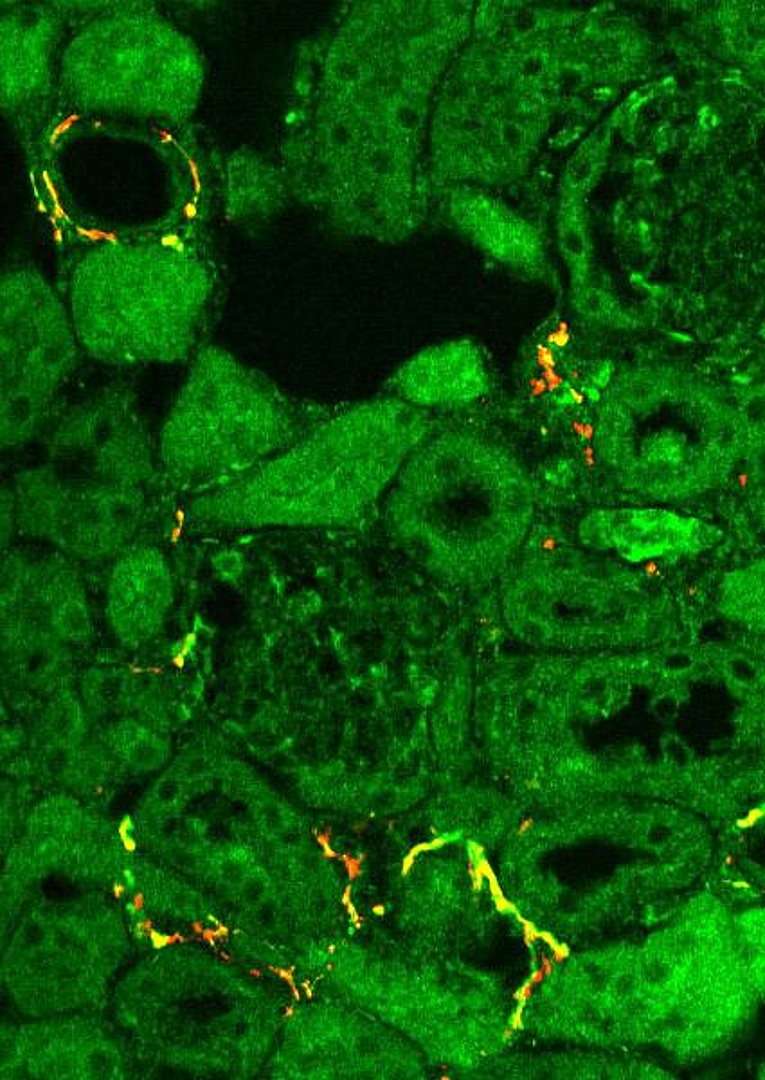
On the one hand our group investigates neurons of the autonomous nervous system that do have connections to the kidney in vivo, with electrophysiological techniques (patch clamp) to study functional aspect on the cellular level. On the other hand, we conduct neurophysiologic experiments in vivo to investigate the role of renal innervation for the kidneys and the whole organism with direct recordings of renal nerves.
The autonomous innervation of the kidney influences the function of the organ in many respects, furthermore renal nerves modulate the neural regulation of the circulation which on the other hand is able to control renal nerve activity via neurogenic mechanisms itself. Increased sympathetic nerve activity enhances salt and water reabsorption in the renal tubuli and augments renin release in the kidney. Furthermore, afferent neural pathways from the kidney influence sympathetic outlow to all organs of the circulation. Eventually, the autonomous innervation of the kidney plays an important role in the pathogenesis of hypertension and volume retaining disorders. In addition, afferent renal nerve fibers are able to secrete pro-inflammatory substances that worsen immunologic and inflammatory processes like in nephritis further aggravated by increased sympathetic nerve activity to the kidneys.
Hence, in our laboratory investigations include healthy organisms as well as experimental projects in hypertension, volume retaining disorders, inflammatory renal disease, sepsis and acute renal failure.
Group leader
Scientists
Graduate students
Christine Heberlein
Martin Hindermann
Stefan Karl
Martin Ziemer
Technicians
Sonja Heinlein
Astrid Ziegler
Collaborations
- Prof. Dr. med. Kerstin Amann, Nephropathologie
- Prof. Dr. med. Winfried Neuhuber, Anatomie
- Prof. Dr. med. Michael Fischer, Physiologie
- Prof. Dr. med. Peter W. Reeh, Physiologie




